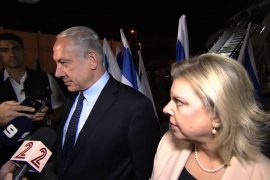We have seen it before. During times of intense BBC coverage of events in Israel, members of the public making complaints to the BBC are likely to find themselves receiving a generic response which actually does nothing to address the substance of their complaint, but is clearly merely intended to tick performance boxes.
During Operation Pillar of Defence in November 2012, we also discovered that there are apparently two versions of the particular template response of the time and that their content depends upon the perceived nature of the complaint. As we documented at the time, one licence fee payer who submitted a complaint about anti-Israel bias received the ‘wrong’ response by mistake, which included the following statement:
“We understand you feel our coverage has shown bias in favour of Israel’s actions in Gaza.”
Well it seems that the template response is back. A reader recently informed us of a reply he received to his complaint on July 25th from a ‘no reply’ e-mail address which in no way addressed the points he raised. [emphasis added]
“Thank you for contacting us about the recent escalation in violence in Gaza and Israel. We have received a wide range of feedback about our coverage of this story across our television and radio programmes and the BBC News website. In order to use our TV licence fee resources efficiently, this response aims to answer the key concerns, but we apologise in advance if it doesn’t address your specific points in the manner you would prefer.
BBC News has reported extensively on the series of rocket attacks launched by Hamas and other Palestinian militants into southern and central Israel in recent weeks. We have reported on the civilian injuries and casualties, destruction and disruption caused by the attacks in towns near Gaza, such as Ashkelon and Sderot. We have also reported on the range and capability of Hamas’ arsenal, emphasising that major urban areas like Tel Aviv and Jerusalem are also under threat from attacks.
During our coverage of Israel’s airstrikes in Gaza we have reported on efforts made by the Israel Defense Forces seeking to minimise civilian causalities [sic]. We have detailed the prior warnings given to Palestinian civilians and have reflected Israel’s claims that Hamas hide weapons in civilian areas and employ non-militants as human shields:
http://www.bbc.co.uk/news/world-middle-east-28245343
http://www.bbc.co.uk/news/world-middle-east-28252155
BBC News has also examined the cause of the conflict, as seen by each side, including Hamas’ hostility to the state of Israel. We believe we have reported on these issues in a fair and impartial manner.
Please be assured we raised your concerns with senior editorial staff at BBC News.
Kind Regards
BBC Complaints
www.bbc.co.uk/complaints
NB This is sent from an outgoing account only which is not monitored. You cannot reply to this email address but if necessary please contact us via our webform quoting any case number we provided.”
There is plenty to be said about the various claims made in this response, but perhaps the most glaring is the one which states that “We […] have reflected Israel’s claims that Hamas hide weapons in civilian areas and employ non-militants as human shields”.
The relevant supplied link – ostensibly providing back up to that claim – leads to a very problematic article on the BBC News website titled “Gaza-Israel conflict: What is the fighting about?” which is dated July 30th. The part of that article which supposedly relates to the all-important issue of the use of human shields by Hamas and other terrorist organisations reads thus:
“Israel has said the homes it has bombed belonged to senior militants and served as command centres where rocket attacks were co-ordinated. It says militants deliberately fire rockets from civilian areas and store rockets in places like homes, school and hospitals – a charge Hamas denies.” [emphasis added]
Not only does this phrasing omit any mention of the term human shields, it fails utterly to reflect the proven evidence of missiles being launched from residential areas and weapons being stored in civilian public buildings such as mosques, hospitals and schools. Further, it ignores the ample documented evidence of Hamas officials and government bodies ordering civilians to remain in their homes even after warnings to evacuate have been given by the IDF.
Moreover, despite the mounting evidence documented both by Israeli forces on the ground and by journalists working in the Gaza Strip, this so-called backgrounder absurdly places that documented evidence on the same footing as the denials of an internationally proscribed terrorist organization.
The BBC has not only failed in its day-to-day reporting to inform audiences adequately of the use of human shields by terrorist organisations – and even in some cases denied outright that the practice exists – but it now continues that policy of deliberate omission in a backgrounder which is supposed to provide BBC audiences with the accurate and impartial information they need to be able to understand this conflict and reach informed opinions on the issue. That is a transparent failure by the BBC to meet its obligations laid out in the terms of its public purposes remit.




